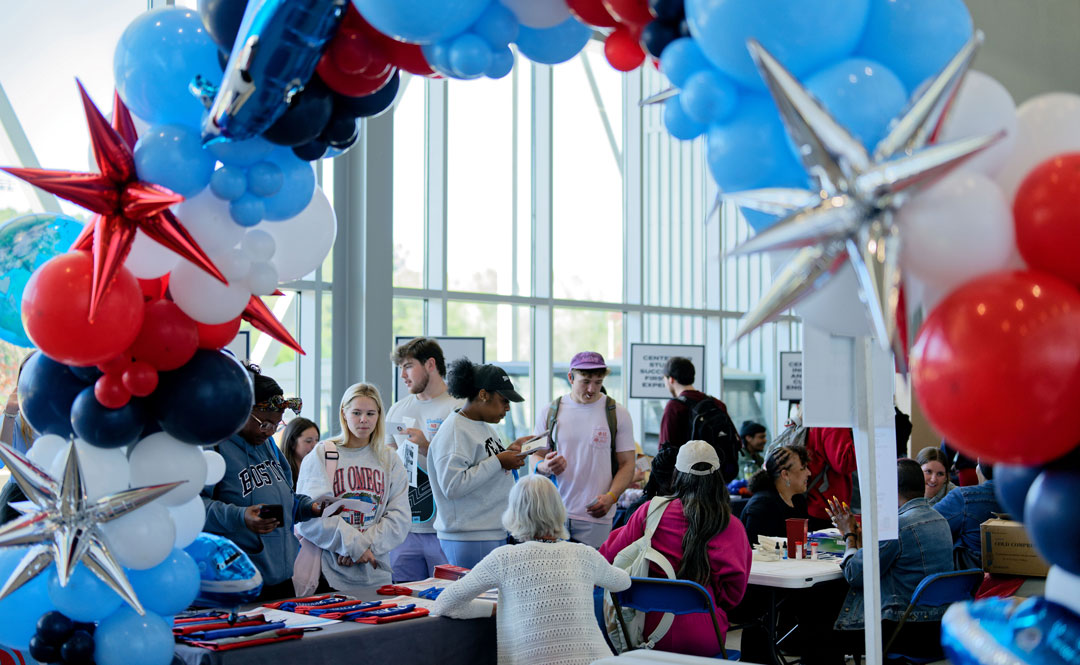The Dr. and Mrs. R. Faser Triplett Foundation of Jackson, Mississippi, has provided a $250,000 gift to match a $250,000 gift from an anonymous donor to hire a Collegiate Recovery Community (CRC) coordinator at the University of Mississippi. The CRC coordinator will provide support to students recovering from alcohol and other drug (AOD) addictions.
The CRC establishes an academic and social support system to address the unique challenges recovering students face in a collegiate environment. Students in the CRC provide peer support, and together, they are more likely to excel academically, maintain long-term recovery and graduate.

Nick McAfee, director of the university’s William Magee Center for AOD and Wellness Education, said the inaugural full-time CRC coordinator has been hired, Mason Glaze, and will be instrumental in helping provide comprehensive support to students.
“We will be able to take our level of support for students in recovery to the next level. This position will oversee wellness programming, educational support and student recruitment for those who are looking for a supportive recovery community,” he said.
“Decades of research on CRCs have shown the enormous positive impact they have on their members,” said McAfee. “We know students who are part of these programs are far less likely to relapse than non-members but are more likely to earn high GPAs and provide mentorship and support to students even after they graduate.”
The Triplett siblings oversee their family’s foundation, a longtime major supporter of Ole Miss: Chip Triplett of Ridgeland, Mississippi; Diane Holloway of Nashville, Tennessee; Suzy Fuller of Greenwood, South Carolina; Liz Walker of Jackson, Mississippi; and Lou Ann Woidtke of Madison, Mississippi. Fuller, who earned an undergraduate degree in business and an MBA from Ole Miss, secured the gift from the anonymous donor and presented the idea for matching it to the Triplett Foundation.
The Ole Miss CRC was founded in 2010, and Fuller joined its board in 2014. Over the years, Fuller has attended several collegiate recovery conferences at different universities and witnessed students thriving in CRCs.
“I’ve been pushing for a full-time coordinator for a very long time. My passion is for students who have returned to school to complete their degrees when they are in recovery. It’s something that has been on my heart,” she said.
When Fuller was a student at Ole Miss, a family member of hers had gone through treatment for alcoholism. Her godfather suggested she meet with an Ole Miss law student who had been sober for three years to learn what the family member was experiencing. She attended an open Alcoholics Anonymous meeting in the Student Union and met the law student Jim Fuller, whom she later married. After graduating from the School of Law, he went on to become a cardiologist, earning a degree from the University of Mississippi Medical Center.
“Little did I know that in 2011, our son, Jay, suffering from the disease of alcoholism, would fail out of Ole Miss his first semester, lose his scholarships, lose his self-esteem, lose everything — and then go to rehab to get sober. When he was ready to return to Ole Miss, he was afraid,” Fuller said. “He really didn’t have sober peers and the support he needed.”
But her son did return, graduated and became a founding partner in an outpatient treatment center in Oxford, Mississippi, helping students who want to remain enrolled in the university while being treated for their addictions.

And as for the anonymous gift: Fuller said she was talking with a friend who invited her to present the CRC need to their foundation. Fuller was hoping to interest the foundation in helping build a $2 million endowment for the CRC coordinator’s position.
The foundation’s board members were so impressed with the potential they saw in the CRC through Fuller’s eyes that they said they wanted her to proceed immediately and that they would provide $250,000 if she could find a matching gift. That’s when she turned to her siblings.
“From the bottom of my heart and on behalf of the William Magee Center, I want to express my thanks to the Triplett Foundation and our anonymous donor,” said McAfee. “These individuals saw what we have accomplished with the CRC and chose to support our vision for what it can become.”
A CRC provides lifelines to students who are seeking recovery. On average, a typical college campus may have as many as 20% of its student body living with an alcohol or substance use disorder, but less than 5% of those individuals will seek treatment or other forms of help, he said.
“Having a well-resourced CRC with visibility on campus means being able to help more of these students by offering a free, low-barrier option for support,” said McAfee. “More students participating in the CRC means more lifelines for students who need it, and the students can earn scholarships.”
When Fuller learned of the foundation’s anonymous gift, she remembered thinking, “Here’s someone who believes in what we’re doing. Somebody really understands. The CRC is so amazing and has so much potential.
“There are so many students who are hurting and need direction. I hope when others see we put our family name behind the CRC, they will believe in it and think it must be worthwhile,” said Fuller, whose family also has supported the Magee Center at Ole Miss.
To support the Collegiate Recovery Community, send a check with the fund noted in the memo line, to the University of Mississippi Foundation, 406 University Ave., Oxford MS 38655 or online here. To learn more about contributing to the CRC or the Magee Center, contact Brett Barefoot, executive director of central development, at bmbarefo@olemiss.edu or 662-915-2711.
By Tina H. Hahn/UM Development

